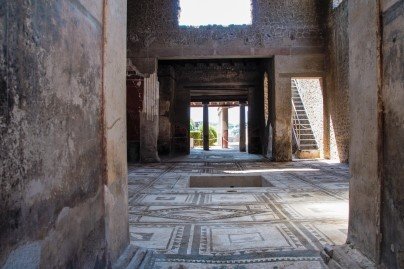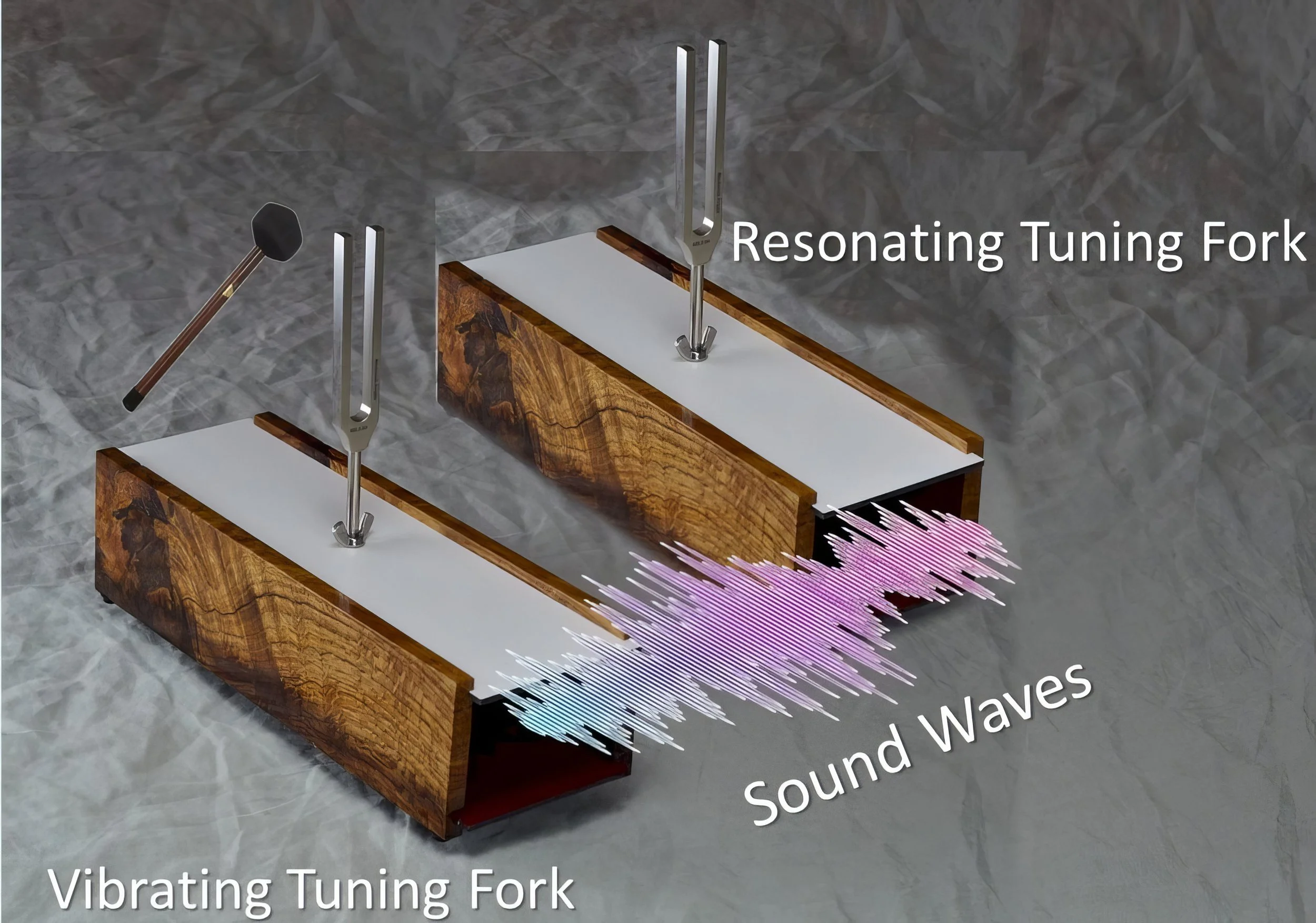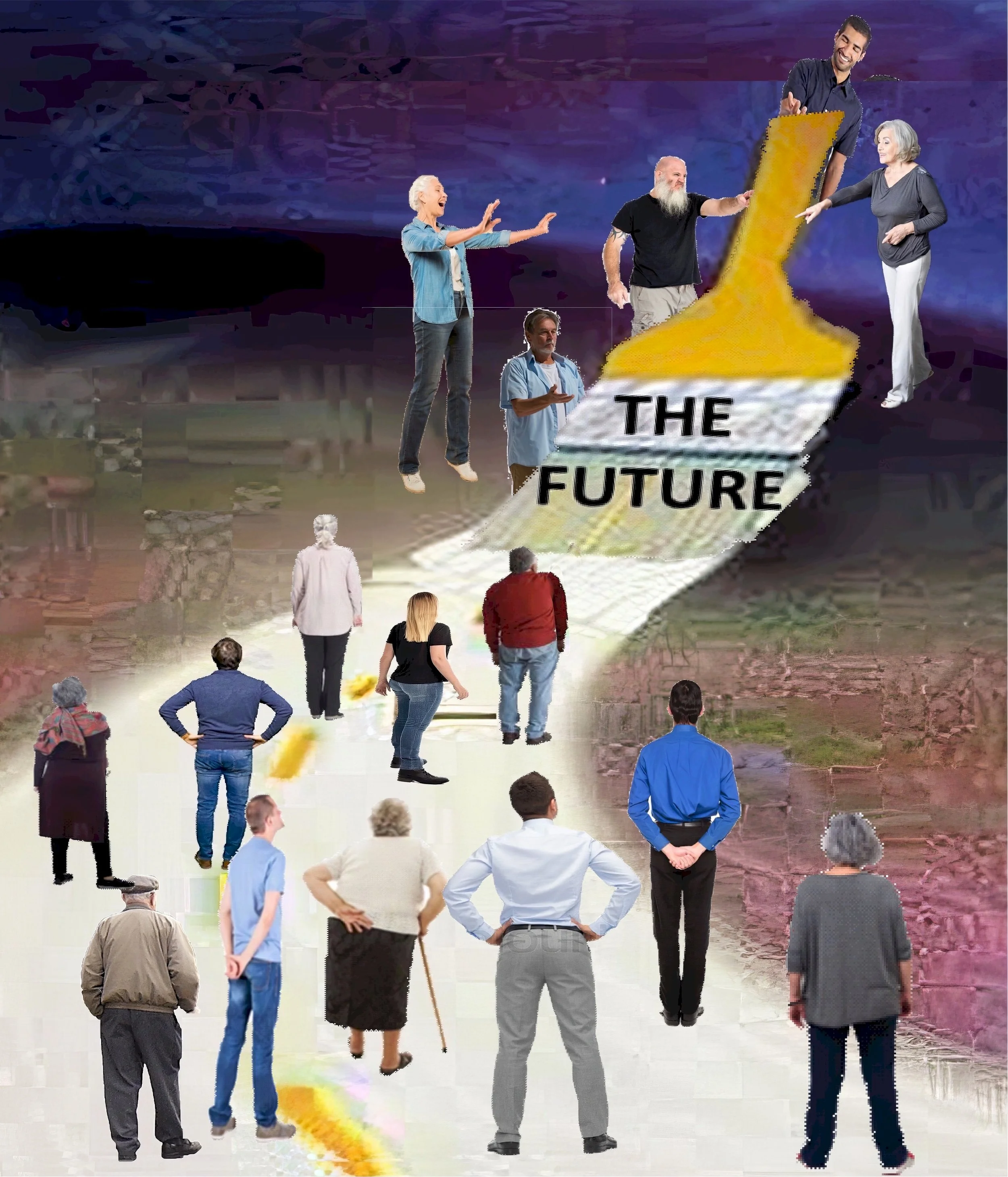Your Awakened Abilities Can Create the Future
Spiritual Gifts Call You to Create the Future - Image by Paul Fryer
PART ONE: You and Your Spiritual Gifts for Healing of the World
"The future is up for grabs. It belongs to any and all who will take the risk and
accept the responsibility of consciously creating the future they want".
Robert Anton Wilson, author, futurist, psychologist, and mystic
"In order to move our culture forward, revolutionaries have had
to speak and plan from the unseen order inside them.”
Glennon Doyle, author and activist
One result of authentic spiritual awakening is that we can find and use our awakened spiritual abilities to change the world for the good of all. At Integral Christian Network, we take Margaret Mead, American cultural anthropologist, seriously when she said, "Never doubt that a small group of thoughtful, committed citizens can change the world; indeed, it's the only thing that ever has."
And these words from Buckminster Fuller, architect, systems theorist, writer, inventor, philosopher, and futurist: "You never change things by fighting the existing reality. To change something, build a new model that makes the existing model obsolete." At ICN we are building a new model of the community that Jesus started and that we have struggled with for centuries, especially the existing unhealthy model of today.
Our growing community, mystical practices, awakened abilities, and other collectives of spiritual evolution combine to powerfully build a new future. Make no mistake, we at ICN are intent on creating the future!
“The future is not something to predict. The future is something to build. ”
One of our several avenues for creating the future is what Paul in the New Testament calls "spiritual gifts." Calling them "gifts" frames our creative capabilities in terms of their divine source. A contemporary, integral understanding of the gifts themselves is to also see them as spiritual abilities that are gifts sourced in God. We are given these for the good of humankind and not for our egoic enhancement.
These may be natural abilities that become directed to spiritual causes upon awakening. We are all naturally gifted in specific ways. When these natural gifts and qualities are used in the flow of spirit-breath-consciousness, they can become spiritual abilities used for the healing of the world.
Or we may have spiritual abilities that only come online in the waking-up process of spirit consciousness. Did you know that both your natural and awakened abilities have names for them? You wouldn't let your children go around without names, so why let your spiritual powers do that? And they are powers to heal the world, after all.
This series on spiritual gifts is not only to invite you to become aware of and name your spiritual abilities, if you are not already familiar with them. But it goes further. It is as vital for your spiritual community to know your gifts as for you to know them!
That's the reason the Apostle Paul gives four samplings of various gifts. These were spiritual abilities that he considered important enough to call to the attention of the early Christian communities. We need to be aware of the spiritual skills of the other people in our spiritual community so we can affirm them and contact or reference them when needed. Recognizing the spiritual skills of your community reveals the fantastic and diverse gifts we are surrounded by.
House Churches in the New Testament
When Paul does his primary teaching in I Corinthians on spiritual gift abilities, he addresses Christians who were part of communities called house churches. These are people who meet regularly and know one another. Having a picture of this can help us understand the context in which Paul was writing and how it is very similar to ICN. So let me describe the early house church.
Second century house of Paquius Proculus,
a Roman citizen and a Christian.
The first Christians typically met in the home of one of their wealthy members. A house owned by a wealthy person in Roman culture would have been much different than our familiar suburban homes in the West. These homes had shops or storefronts in the front with a hall leading back to a large atrium. Beyond the atrium was an even larger courtyard surrounded by bedrooms and other living areas.
The early house churches met in the mostly covered atrium area of the house as shown in the picture. In the smaller Roman villas, these areas would have seated 50-60 people. In larger homes, they could have seated as many as 150.
These first-generation would have all known each other, coming together regularly in an intimate setting.
This is also the context of those of us in ICN WeSpace groups. While not first-generation Christians, we are a first-generation of evolving integral Christians. As pioneers like the first Christians, we feel the exhilaration of new emergence as we meet regularly and connect.
Spiritual Abilities in the New Testament
The Apostle Paul said, "We have different gifts, according to the grace given us... let us use them in proportion to our faith" (Rom. 12:6). We all have a cluster of gift-abilities that God gives us "for the common good" (I Cor. 12:7) and to "equip the saints for the work of ministry" (Eph. 4:11).
Some of these spiritual abilities are named in four passages in the New Testament. These passages appear to be representative of various kinds of gifts-abilities rather than a complete listing. Look for some of your spiritual abilities in these four brief lists from the Apostle Paul even though they may be called by a traditional name. How many can you find?
Prophecy, distinguishing spirits, wisdom, spiritual knowing, miracles, healing gifts, prayer languages, interpretation of prayer languages, and faith (1 Cor. 12:7-10).
Prophecy, teaching, exhortation, service, leading, giving, and mercy. (Rom. 12:6-8).
Prophets, apostles, teachers, miracles, teaching, gifts of healing, helping, leadership, and various prayer languages (Cor. 12:28).
Prophets, apostles, evangelists, pastors, and teachers (Eph. 4:11).
The most useful gift
Notice that prophecy is the only gift mentioned in every list. Paul considers it the most useful gift available to everyone, and therefore, the most important gift!
Saying that he wants everyone to prophesy (I Cor. 14:5), he continues with, "Be eager to prophesy" (I Cor. 14:39). At ICN we call this ability "Resonating Prayer" and we, too, encourage every ICNer and WeSpace member to engage in it.
In ICN, we don't use the word "prophecy" in this context because of the emphasis today in some charismatic settings on authoritarian advice-giving in the guise of "prophecy." It is also often misunderstood to be about predicting the future.
We see prophecy is about “giving voice” to our spiritual knowing—which is an ability we develop—primarily speaking forth words of encouragement, comfort, and strengthening as defined in I Cor 14:3.
Here are the Apostle Paul's wise and practical guidelines for this "speaking forth" kind of prayer for others:
“Pursue love and especially that you may speak forth awakened inner impressions (prophecy). This builds up the Christian community in a powerful way. I want you all to do this, one by one, so that all may learn and be encouraged. Those who pray for others in this way speak to others for their comfort, encouragement, and strengthening. When this happens, let the others present discern what is said” (I Cor 14:1, 4, 3, 29 my translation in italics).
Resonating Prayer
When striking a tuning fork near another one of the same frequency, the other one vibrates. This kind of resonance in the energetic spiritual realm is what we mean by resonating prayer. This transmission resonates first with us, then finds a resonance in the one we are offering our resonating prayer transmission.
What Paul writes about prophecy "comforting, encouraging, and strengthening" others (I Cor 14:3), we call "resonating prayer." This kind of prayer for others comes from a deeply personal, vibrating, felt resonance within us that seeks to strike a chord of blessing in another as we speak forth what we see.
Notice that Paul sees giving voice to your mystical inner impressions here and in other places in the New Testament as a powerful way to build up the Christian community. This is because it results in, as he said, "comfort, encouragement, and strengthening" for one another. He wants everyone to engage in this, not just a few.
In addition, as Paul recommends, it is important for others to give us feedback about whether our words of resonating prayer seem helpful to others or not ("Let the others weigh what is said" I Cor. 14:29).
Resonating prayer comes in two forms. One, without words, transmits loving, healing energy to others.
The other form of resonating prayer is with words — but in a different way from the traditional "asking God to do things." In this kind of prayer, we are the ones who "do things" by giving voice to our awakened inner impressions for others regularly in our WeSpace meetings. This practice is a powerful way to profoundly and lovingly strike a chord with others in encouraging, strengthening, and comforting them.
Golden Shadow
Resonating prayer is important because it reveals the golden shadow in one another.
Our "shadow" is a psychological concept introduced by Swiss psychiatrist Carl Jung. It refers to the parts of ourselves that we are unaware of or repress because they don't fit our self-concept or societal norms. These can be both positive and negative traits, desires, or tendencies that we reject or hide from our conscious awareness.
The "golden shadow" is a term that Jung used to describe the positive aspects of our shadow self. We possess these qualities, talents, or potentialities but have not fully embraced or acknowledged them. Just as the traditional shadow contains aspects of ourselves we'd rather not see, the golden shadow contains positive attributes we may downplay due to feelings of inadequacy, fear of standing out, or societal conditioning.
For example, if someone has a talent for public speaking but avoids it because of stage fright, that talent would be in their golden shadow. Similarly, someone who tends to be assertive and take charge but suppresses those traits to avoid conflict might have those qualities in their golden shadow.
According to Jungian psychology, integrating the shadow, including its golden aspects, is a key part of personal growth and individuation. It involves bringing these unconscious or suppressed aspects into our conscious awareness, accepting them as part of our whole self, and finding ways to express them in a healthy and balanced manner.
Resonating prayer invites us to bring these qualities into our awareness. This process can lead to greater self-awareness, increased self-acceptance, and a more authentic and fulfilling life. These are essential parts of our spiritual growth.
Prophetic Seeing
There is one other use of the word "prophet" or "prophetic" in the Bible, which we can embrace today in our work at ICN. Richard Rohr, one of our prophetic heroes, writes, "The essence of the prophetic task is to articulate a vision of the common good that has the power to capture the imagination of the people as a goal worthy of struggle and sacrifice."
ICN is just such a prophetic community and movement. There is a new, growing number of Christians who live in anguish because they no longer feel safe or at home in traditional churches. They are desperate for a community of those on a similar spiritual journey and, if possible, for a version of Christianity that makes sense to them.
“It is the task of the prophet to bring to expression the new realities against the more visible ones of the old order. Energizing is closely linked to hope. We are energized not by that which we already possess but by that which is promised and about to be given. ”
For Richard Rohr, prophets do not foretell the future, but they do seem to anticipate futures that are shocking to the rest of us. He writes:
"The reason prophets can speak so clearly and strongly in the now is because they judge the now from, of all places, the future. Prophets have seen the future. In other words, they have seen where God is leading humanity. They have seen and drawn close to the heart of God and they know God is leading us somewhere good. Since they know the conclusion and where it is that we're heading, they become impatient and angry at the present state of things. If we know where history is going and what God is leading us toward, if we know what our lives could and should be, why are we wasting time with all this violence and all this stupidity?
Prophets nurture and evoke a new way of thinking. They give us images and words that subvert our system and tell us that we haven't seen the whole picture yet. Prophets are not just concerned about social change for the sake of social change. They are concerned above all with transformation and freedom of the heart, and then out of that free heart, the prophet says, 'Listen.' The prophet creates a new, freeing consciousness which allows us to hear the divine word."
The original Hebrew word for a prophet meant simply "one who sees." A prophet is a seer who sees all the way through. I asked my Sunday School teacher seventy-five years ago at age twelve why the "stuff" we read about and studied in the Bible didn't seem to happen in our church. He didn't know, nor did anyone else I could find. Of course, I didn't have the word "mystical stuff" for it at that age. However, I was anticipating the future of Christianity in a beginning prophetic sense.
Jesus saw a prophetic new vision of his old religion, which he no longer considered adequate. ICN also has a prophetic call that sees our ancient, traditional Christian religion as no longer adequate. We see a prophetic community coming from the future with mystical practices that enable those of us who are deconstructing or outgrowing our earlier faith to follow the call of God to evolve together. We continue to follow the prophetic call of Jesus, our chief prophet.
I see this prophetic gift within the Christian path as the ability with others to sense and see the next stage in the evolution of Christianity. We find this in people like Richard Rohr for Christianity and Ken Wilber for the larger culture. Luke and I founded ICN with this prophetic seeing.
Many in ICN have this awakened ability of prophetic seeing. That's why they are here!
But all of us can participate in various forms of “giving voice” to our spiritual knowing (prophecy). That is why we should “eagerly desire” it, because it is how God brings us into divine resonance with one another and the world, as we are all working to come into our golden present and future.
Next week, we’ll consider some other spiritual abilities.
Reflection
How do you experience resonating with others in resonating prayer or other times in your life?
Does this "speaking forth" that which comes for yourself and others in an awakened consciousness seem helpful to you?
Do you sense the prophetic call of ICN?








